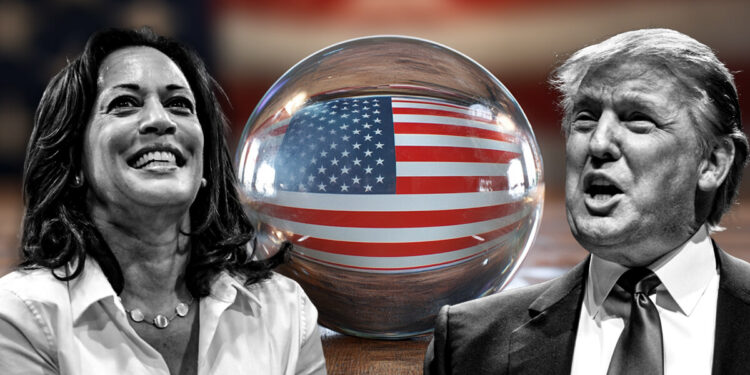Polymarket has seen remarkable activity, with nearly $1 billion in bets placed on the outcome of the 2024 U.S. presidential election.
Current Odds on Candidates
According to recent data from the Polymarket platform, Vice President Kamala Harris is emerging as a leading Democratic candidate, with a 50% probability of winning, backed by approximately $135 million in wagers. In a closely contested race, Republican candidate Donald Trump trails slightly, holding a 49% chance and nearly $150 million in bets.
The Role of Crypto in Election Dynamics
The growing influence of cryptocurrency in the election is increasing engagement on Polymarket. Harris’s team has indicated a shift towards a more crypto-friendly stance compared to the current administration’s policies. Conversely, Trump has garnered support due to his strong advocacy for crypto ventures.
Surging Participation
As the election date approaches, Polymarket is experiencing a significant uptick in activity. Dune Analytics reports that over 40,000 traders are now active, resulting in a nearly tenfold increase in trading volume compared to the previous year.
Challenges on the Horizon
Despite this success, a recent report from Crypto.com highlights that Polymarket faces challenges in maintaining its trading volume post-election. As the decentralized marketplace evolves, new competitors are emerging in the crypto space.
Emerging Competitors
One notable competitor is the Solana-based BET, which presents a substantial challenge to Polymarket’s market share. Crypto.com pointed out that BET is leveraging existing liquidity from decentralized exchanges (DEXs), positioning itself well in the prediction market landscape.
The Importance of Liquidity
To remain competitive, Polymarket must enhance its liquidity by expanding into sports betting and other significant cryptocurrency events. The report emphasizes that players with robust liquidity channels could undermine Polymarket’s current standing in the prediction markets.
Regulatory Landscape
In addition to competition, Polymarket faces regulatory hurdles. The U.S. Commodity Futures Trading Commission (CFTC) has proposed restrictions on “event contracts” and has initiated legal actions against companies like Kalshi that engage in election-related betting.
Conclusion
The landscape of the U.S. presidential election betting is rapidly evolving, with platforms like Polymarket navigating both competition and regulatory challenges. As the election draws near, the bets placed may signal shifting sentiments among voters and investors alike.




